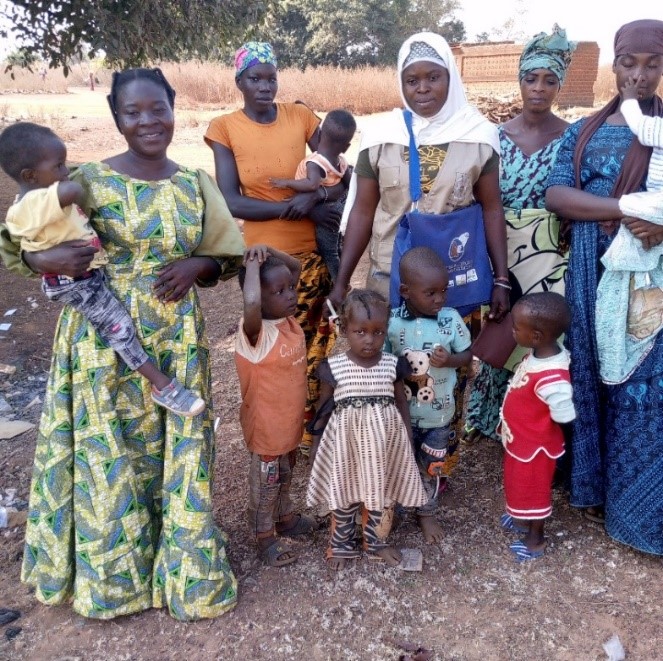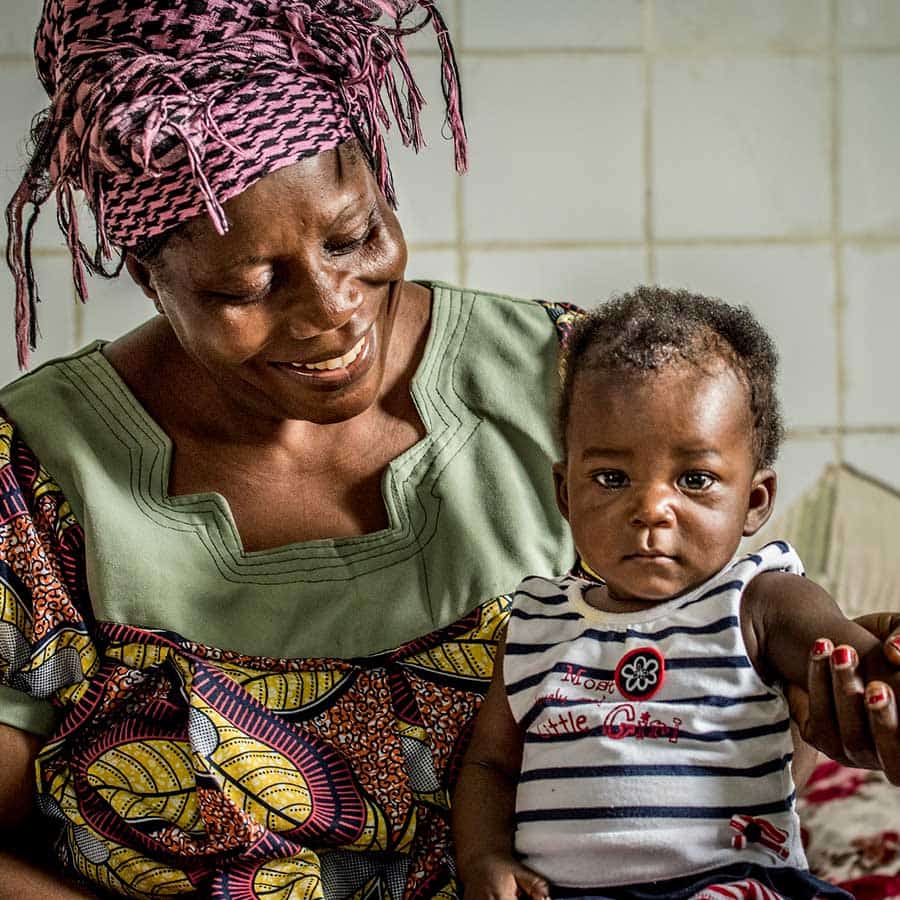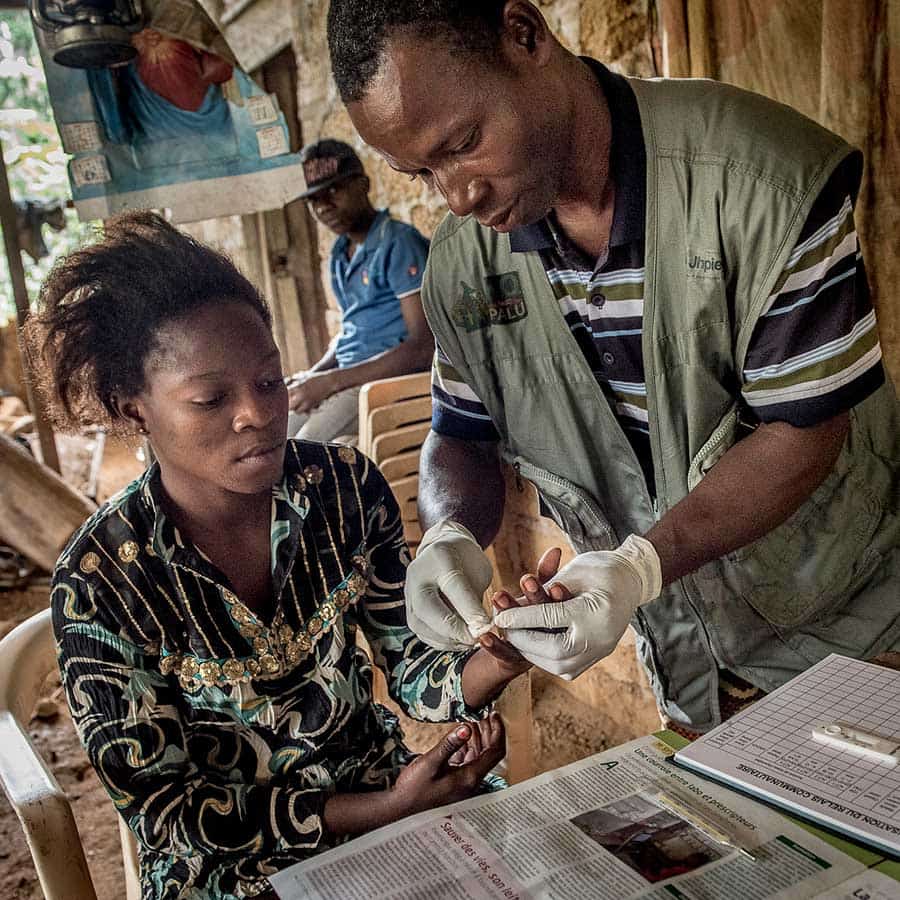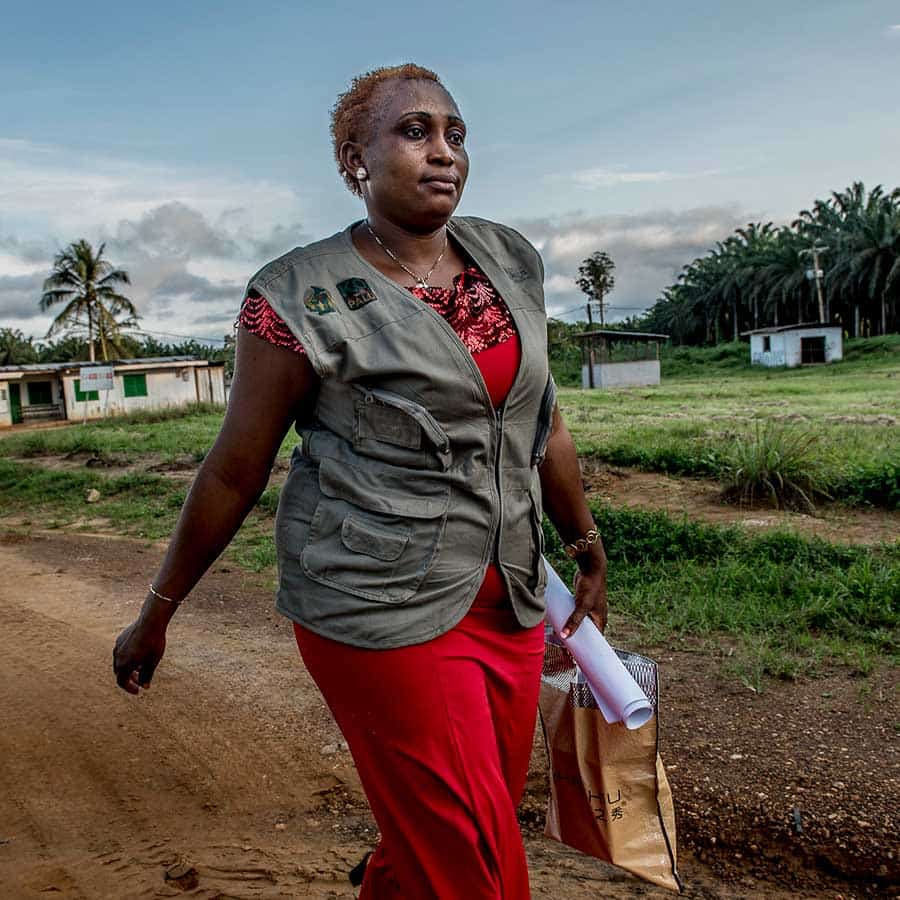What is Malaria?
Malaria is a deadly disease transmitted to people by mosquitoes. Malaria was eliminated in the U.S. in 1951, but it remains one of the most serious global health problems.
Pregnant women and children are most at risk of dying from malaria, but the disease is both preventable and treatable. In 2023, Jhpiego-supported programs provided 1.6 million pregnant women with three doses of preventive treatment, 2.7 million children with seasonal malaria chemoprevention and 13.6 million children and adults with prompt malaria confirmatory testing and appropriate treatment
Pregnant women and children account for the vast majority of deaths due to malaria in Africa.
Jhpiego is accelerating the fight against malaria for a more equitable world.
On World Malaria Day, April 25, Jhpiego’s staff implementing malaria projects joined with the global malaria community under the theme: Accelerating the fight against malaria for a more equitable world. Toward that goal, Jhpiego supports national malaria programs in 13 countries in sub-Saharan Africa and Asia to deliver quality prevention, diagnosis and treatment services so that women and families receive the right care at the right time. Much of our work focuses on strengthening health facilities and the skills of health care providers to significantly reduce illness and death, especially among those most at risk, pregnant women and children under five.
With this selection of stories from Rwanda, Ghana and Burkina Faso we invite you to meet some of our frontline health workers and their ongoing efforts to prevent, diagnose and treat malaria.

Lab technicians learn to identify more malaria species
According to Tharcisse Munyaneza, the Senior Parasitology Officer at the Rwanda Biomedical Center, Jhpiego-support malaria microscopy training was a milestone for lab technicians who improved their diagnostic skills.

Empowering health information officers enhances malaria service delivery
In Ghana, Joseph Boye-Doe, a deputy regional health information officer, leads comprehensive training and coaching programs for health information officers, which improve delivery of malaria care services.

A dose in time to prevent malaria
Hélène Sebgo, a community health worker in Limalia, Burkina Faso, promotes seasonal malaria chemoprevention during periods of high malaria transmission.
How we make an impact

Prevention
We educate communities about the use of insecticide-treated bed nets, support malaria vaccine introduction and, where beneficial, provide preventive treatment for pregnant women and children under 5.

Diagnosis and treatment
We empower health workers at the community and facility levels to test for malaria and appropriately treat malaria cases.

Surveillance
We support case detection, follow-up, investigation and data collection to understand the impact of the disease on communities.

Malaria Vaccine: A New Asset in the Malaria Prevention Toolkit
As the eagerly awaited malaria vaccine moves from trial to rollout, Jhpiego is using its 20 years of experience in malaria prevention and treatment—from promoting insecticide-treated bed nets, to supporting intermittent preventive treatment of malaria in pregnancy and seasonal malaria chemoprevention, to providing training to health care workers to test for, diagnose and treat malaria—to support the governments of Burkina Faso and Liberia, and soon Côte d’Ivoire, in introducing the vaccine. Dr. Christopher Morgan, Jhpiego’s technical director for immunization, discusses the potential impact of the vaccine in saving lives and improving health of the people we serve. Dr. Morgan is a pediatrician, public health physician and implementation research expert with more than 30 years of experience in immunization and related health areas and a member of the World Health Organization Strategic Advisory Group of Expert’s COVID-19 Vaccines Working Group.
Read more about our malaria vaccine workMalaria Publications
- Antenatal care services in Benin and Tanzania 2021/2022: an equity analysis study
- Use of supervision data to improve quality of care for malaria in pregnancy: Experience in six African countries
- Impact of the severe malaria “Champions Program” on the management of severe malaria cases in 12 hospitals of the North and Far North Regions of Cameroon
- Prevalence of molecular markers of resistance to sulfadoxine–pyrimethamine before and after community delivery of intermittent preventive treatment of malaria in pregnancy in sub-Saharan Africa: A multi-country evaluation
Help us prevent malaria
With your support, together we can educate women and families on malaria prevention, empower health workers to test and treat, and support community case detection, follow-up, investigation and data collection.



